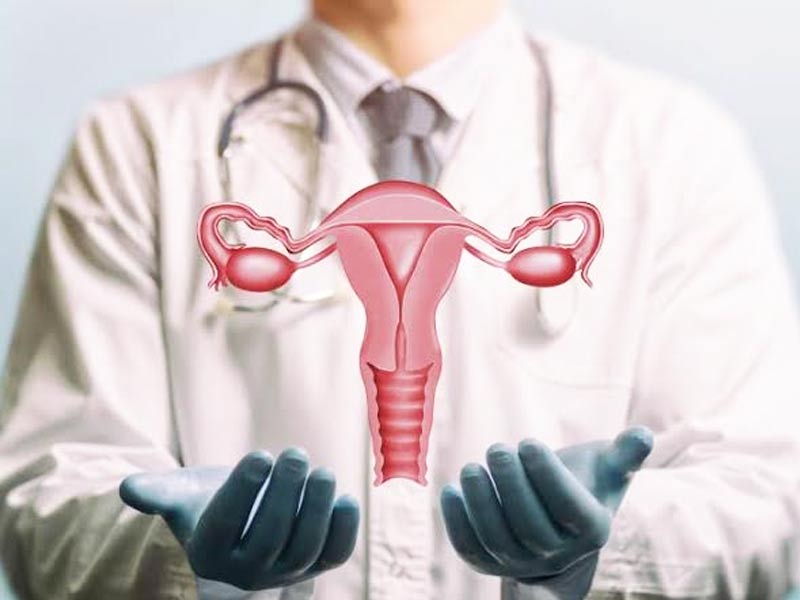
Do you know the exact cause of uterine cancer? It is still unknown. But it is the most common cancer of the female reproductive organs. There are no screening tests to diagnose uterine cancer in the early stages (hence, it is hard to prevent). Swelling in the uterus of a woman usually occurs when her menopause is about to happen. Swelling occurs between the age of 50-55 years when the time of menopause is close in women (that is when the periods are about to end). But with the polycystic ovary syndrome and at the time of conception, the uterus of women can also be swollen.
The endometrium is the inner lining of the uterus. When the cells of the same endometrium grow abnormally, they cause endometrial cancer. Endometrial cancer is dangerous because it can destroy the ability to become mothers forever. Endometrial cancer is also called uterine cancer. Onlymyhealth editorial team spoke to Dr. Tejinder Kataria, Chairperson Radiation oncology Cancer Center, Medanta The Medicity, about the symptoms, causes and treatment of uterine cancer.
Uterine cancer symptoms

If you have sudden bleeding other than periods or any kind of liquid discharge from your vagina other than blood, then these can be a symptom of endometrial cancer. In such a situation, you must get tested. Apart from this, the cycle of your period is continuously changing, bleeding after menopause is also the initial symptom of endometrial cancer. On seeing such signs, immediately go to the gynecologist. Here are the main symptoms of uterine cancer:
- Painless spotting or bleeding even after menopause
- Urinary burning
- Weight loss
- Lower backache
- Pain in pelvic area
Also Read: 8 Facts That No One Tells You About PCOS
Uterine cancer risk factors
Apart from the change in the size of the uterus, there are many other signs of swelling in the uterus. But the symptoms of inflammation in the womb usually depend on its cause. At the time of periods, women start having stomach cramps, menstrual abnormalities, i.e. pain with excess bleeding, feeling some heaviness in the lower abdomen, weakening and pale body, extra fat around the waist: freezing, leg pain, cramps and swelling, and very severe pain during sex. According to Dr. Tejinder, here are the risk factors of uterine cancer:
- Obesity
- Family history
- Age
- Smoking
- Poor diet
Uterine cancer treatment

A healthy diet is vital for a healthful pregnancy, and daily exercise is essential. The blood does not reach the uterus and other parts correctly if you are physically inactive or do not exercise at all. The muscles of the womb become weak due to lack of physical activity. Do some exercise or walk for 30 minutes daily. Yoga is also useful in keeping the muscles flexible and powerful. Also, take nutritious food and avoid stress.
Also Read: Are There Any Downsides of Intrauterine Device or IUCD? Know From Gynaecologist
For swelling in the womb, it is essential to contact a doctor, but you can also use the following home remedies:
- Liquorice powder: You can also drink liquorice powder in water. Apart from all these, whenever there is a problem of inflammation in the uterus, fruit juice should be consumed as much as possible. Besides, you can also drink vegetable juices. This will provide relief from inflammation of the uterus.
- Neem leaves: You can use neem leaves to keep your uterus healthy. Make a decoction by heating dry ginger and neem leaves in water. It would be best if you consumed it once a day.
- Flaxseeds: You can stay healthy by using flax seeds. You can boil flaxseed seeds in milk and drink it. Drink it before you sleep at night.
- Turmeric milk: Drink turmeric milk twice a day. Apart from this, you can also drink almond milk.
Read More Articles in Women's Health
Also watch this video
How we keep this article up to date:
We work with experts and keep a close eye on the latest in health and wellness. Whenever there is a new research or helpful information, we update our articles with accurate and useful advice.
Current Version
